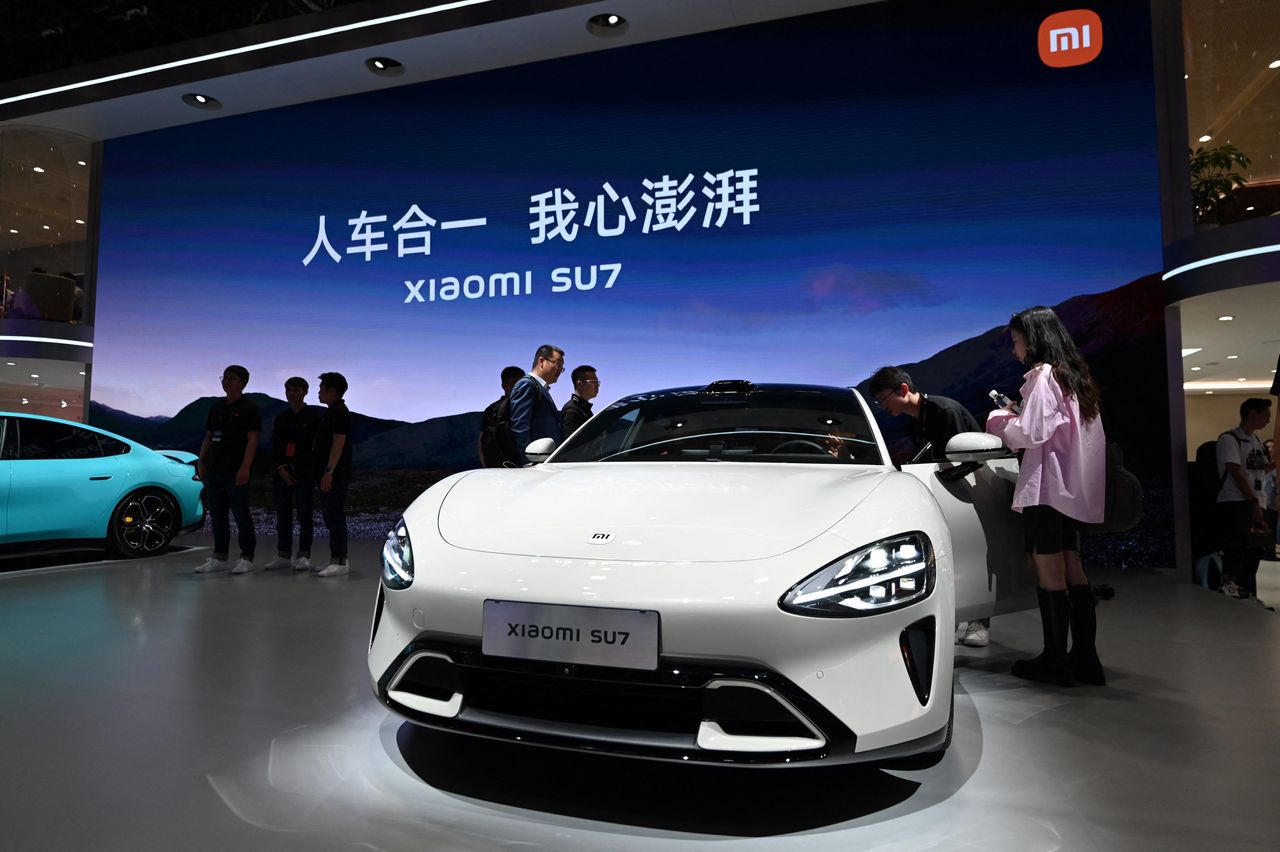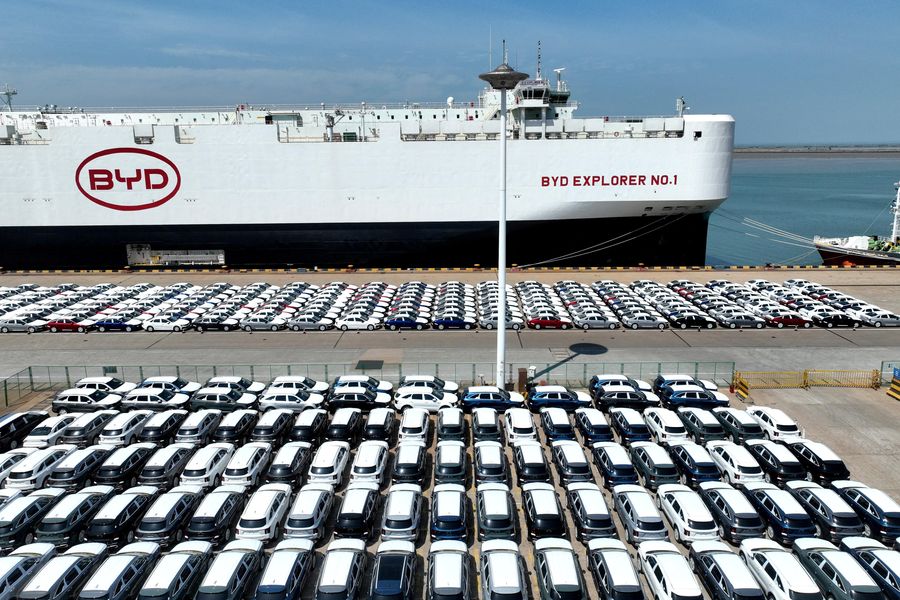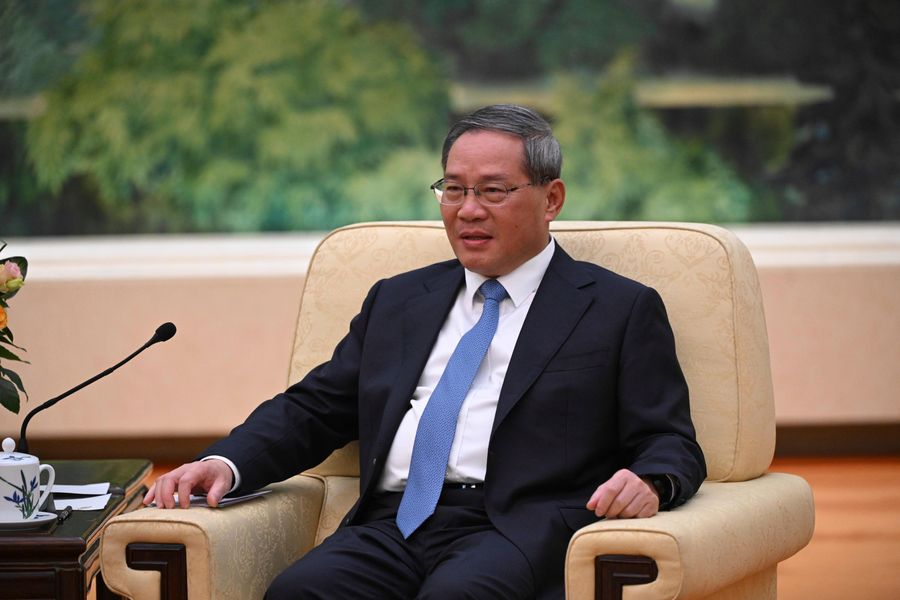BEIJING—In 2019, a little-known Chinese carmaker named Zhido went bust after Beijing cut subsidies for the tiny electric cars it made, crushing its sales.
Now it is back. Earlier this month, the company released a boxy new mini-electric vehicle called “Caihong,” or “Rainbow” in Chinese, which comes in seven pastel colors—including “Mint Mambo”—and has a starting price equivalent to around $4,400.
Zhido’s rebirth came after state-backed funds and dozens of other investors pumped fresh capital into the company late last year—despite widespread signs that China has too many carmakers to serve its needs. Local government officials cheered its revival.
“I hope Zhido can contribute to the sustainable and healthy development of the new energy vehicle industry!” the governor of China’s Gansu province, who visited Zhido’s plant there in March, was quoted as saying on the carmaker’s website.
China has a long history of auto overcapacity, with more than 100 domestic brands churning out more vehicles than the country’s drivers buy each year.
Yet the government continues to support companies such as Zhido and others, encouraging unprofitable carmakers to keep producing as officials try to boost economic growth, preserve jobs and expand China’s role in the global electric-vehicle business.
Such encouragement, which also comes in the form of subsidies to automakers, is adding cars to a global market that risks becoming more oversupplied.
China currently has the capacity to produce some 40 million vehicles a year, though it sells only around 22 million cars domestically, according to capacity data from Shanghai-based strategy firm Automobility and sales figures from the China Passenger Car Association.
That situation has led to a brutal price war with Tesla and others cutting prices in China, while triggering fears in the U.S. and Europe that Chinese automakers would flood other countries with unsold cars.
Overcapacity is especially apparent for cars with internal combustion engines, which are falling out of favor as Chinese consumers switch to EVs.
But overcapacity is also an issue for Chinese EVs, with too many companies fighting for market share. Last year, 123 brands sold at least one electric vehicle in China, said Stephen Dyer, a Shanghai-based auto consultant at AlixPartners.
Washington is worried that Chinese companies will try to dump subsidized vehicles in the U.S., despite high American tariffs on imported Chinese cars. Europe last year opened a probe into Chinese electric-vehicle subsidies that is likely to result in import tariffs in the coming months.
China’s car exports have nearly quintupled over just three years to about five million vehicles in 2023, partly triggering the American and European concerns. Three-quarters of the exports last year were internal-combustion-engine cars, with many going to Russia, though the number of EVs shipped overseas is also growing.
Chinese officials say that criticism of its auto-industry policies is unfair and that Chinese cars are innovative and offer good value—a point many auto-industry experts and foreign carmaker executives make as well. The U.S. also uses government support to promote its electric-vehicle industry, through the Inflation Reduction Act, which China has challenged at the World Trade Organization.
What is clear is that China’s auto industry is in expansion mode, even as its domestic sales growth has slowed.
At the Auto China exhibition in Beijing, the biggest car show in the country, which started Thursday, nearly 300 electric and plug-in vehicle models are being exhibited. They include a sporty electric sedan introduced by Xiaomi, a Chinese smartphone maker that has just entered carmaking and plans to deliver 100,000 of the vehicles this year.

Unleashing ‘new productive forces’
Beijing long ago identified EVs as an industry it wants to dominate, and many local governments have competed to develop new automakers that can bring jobs.
The urgency to do so has increased over the past year, as other parts of China’s economy have stagnated and Chinese leader Xi Jinping has called on local leaders to promote “new productive forces”—a buzzword in Chinese policy circles for the need to promote high-value manufacturing industries.
Government support for the industry includes below-market-rate loans and discounted steel and batteries for automakers, according to the Germany-based Kiel Institute for the World Economy in a report in April.
BYD, China’s biggest electric carmaker, received about $3.5 billion in direct government subsidies between 2018 and 2022, the institute said, citing BYD’s annual reports. BYD didn’t respond to a request for comment.

Overall, China spent roughly $173 billion in subsidies to support the new energy-vehicle sector, which encompasses electric and plug-in hybrid vehicles, between 2009 and 2022, according to the latest estimate available by Scott Kennedy, a researcher of China’s economic policies at the Center for Strategic and International Studies.
Only four EV brands in China’s market sold more than 400,000 vehicles each last year—a volume viewed as a break-even point for EVs based on historical financials from Tesla, AlixPartners’ Dyer said. The four were BYD, Tesla, Aion and Wuling.
Some Chinese EV makers have gone out of business in recent years, and top officials have at times spoken openly about the need for more consolidation.
In March, Premier Li Qiang said in an annual government work report that China would consolidate and enhance its leading position in industries including new energy vehicles.
But Li also emphasized Beijing’s intention to keep investing in high-end manufacturing, repeatedly using the phrase “new productive forces.” Local governments, which take cues from Beijing on economic priorities, have responded by backing automakers in their areas.

Supporting struggling companies
In February, the city of Zhengzhou in central China vowed it would foster “new productive forces” industries and become the “city of new-energy vehicles” with an annual capacity of 700,000 for such cars.
A month later, a state-backed entity in Zhengzhou temporarily took over the assets belonging to the local unit of Haima Auto, which has close to 3,000 employees and a plant there. In the first three months of the year, the struggling carmaker sold fewer than 2,000 cars, a company filing showed.
The five-year deal provided Haima with the equivalent of about $27.5 million in needed cash. Haima said it would focus on boosting exports in markets such as Russia and Vietnam to drive growth.
At Zhido, the mood upon its recent restructuring was euphoric. At a packed mid-April event, the company’s founder, Bao Wenguang, raised his hands in the air and exclaimed, “Zhido is finally back!” a video of the event showed.
Ren Zhenhe, the local Gansu governor who visited its plant, was quoted as saying then that he hopes the carmaker can play a role in enhancing “new productive forces.”
At one point, between 2014 and 2017, Zhido was among China’s bestselling electric-vehicle makers, specializing in mini electric cars. Back then, purchases of such small electric cars were subsidized by the government.
When Beijing ended that policy as it tried to encourage longer-range EVs, sales tanked, leaving Zhido with debts of around $250 million, according to documents from an online platform run by Alibaba Group for judicial auctions.
After its restructuring in October, which involved a unit of state-owned company China Three Gorges and Chinese automaker Geely, Zhido is now aiming to double sales annually through 2026 and release 16 new models by 2028. It plans to expand production capacity at its plant in Gansu to 300,000 vehicles a year and “actively cultivate overseas business.”
Write to Yoko Kubota at [email protected] and Clarence Leong at [email protected]
News Related-
Russian court extends detention of Wall Street Journal reporter Gershkovich until end of January
-
Russian court extends detention of Wall Street Journal reporter Evan Gershkovich, arrested on espionage charges
-
Israel's economy recovered from previous wars with Hamas, but this one might go longer, hit harder
-
Stock market today: Asian shares mixed ahead of US consumer confidence and price data
-
EXCLUSIVE: ‘Sister Wives' star Christine Brown says her kids' happy marriages inspired her leave Kody Brown
-
NBA fans roast Clippers for losing to Nuggets without Jokic, Murray, Gordon
-
Panthers-Senators brawl ends in 10-minute penalty for all players on ice
-
CNBC Daily Open: Is record Black Friday sales spike a false dawn?
-
Freed Israeli hostage describes deteriorating conditions while being held by Hamas
-
High stakes and glitz mark the vote in Paris for the 2030 World Expo host
-
Biden’s unworkable nursing rule will harm seniors
-
Jalen Hurts: We did what we needed to do when it mattered the most
-
LeBron James takes NBA all-time minutes lead in career-worst loss
-
Vikings' Kevin O'Connell to evaluate Josh Dobbs, path forward at QB
